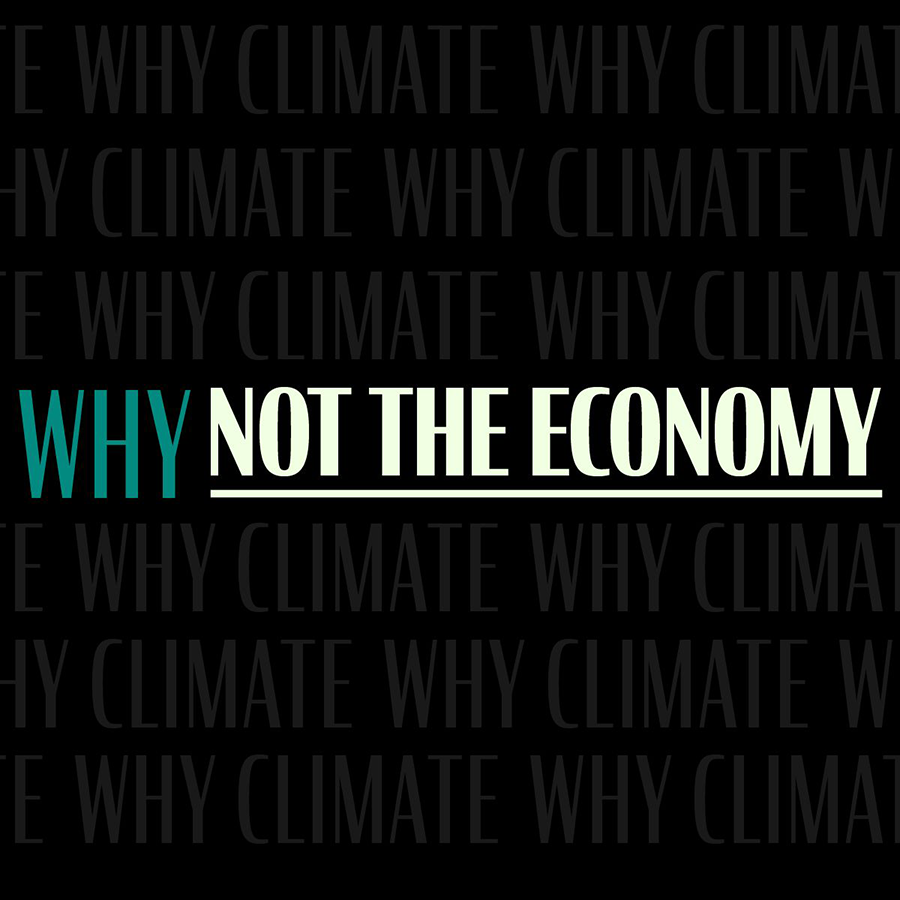Climate
Why Not the Economy?
Published
January 15, 2024
By
Team

In recent years, the growing effects of climate change, paired with declining economies worldwide, has brought the tussle between economy and climate to the forefront of world politics. While economic stability and growth have long been seen as crucial for the well-being of a country, governments, corporations and citizens alike often choose to prioritise immediate economic concerns over climate change issues.
The common fear shared by these stakeholders is that stringent climate regulations or a transition to clean energy could stymie progress and hinder national development at a time when the global economy is weakening. In particular, the short-term costs and uncertainties associated with implementing climate-friendly policies serve to deter policymakers from taking action despite the urgency of the climate crisis.
The US is a case in point, having withdrawn from the Paris Agreement in 2020 as then-president Donald Trump believed that there would be a significant cost-burden on the economy if they chose to abide by it. Even Singapore has hesitated to sever ties with its $80 billion fossil fuel industry. This is despite projections by London-based think tank Carbon Tracker that suggest around US$1 trillion of oil and gas investments would become unviable in a low-carbon world.
The dilemma between economy and planet
Why is it so challenging for us to forgo the economy in the face of growing climate concerns? Part of it is due to the way that economies around the world are inherently structured — non-environmentally friendly practices are part and parcel of the economic system which in turn relies on the exploitation of the environment to generate growth. Little consideration is given to the ecological consequences of such actions.
This can be observed in Trinidad and Tobago, which is one of the largest producers of fossil fuels in the Americas. According to the non-profit organisation Climate Tracker, the fossil fuel industry makes up 45 per cent of the country’s GDP and has long been seen as the bedrock of the local economy. This has made it hard for the Caribbean nation to transition away from fossil fuels to alternative energy sources that are more environmentally-friendly without resulting in widespread repercussions for its citizens.
Poverty-stricken communities in the country not only rely heavily on fossil fuels for cheap power (with the national electric grid powered almost entirely by natural gas) but also depend on the revenues generated from the industry to keep welfare programmes sustainable. As such, there is little incentive for the local government to push for change, even as the nation struggles to deal with the effects of climate change in the form of worsening weather conditions.
And therein lies the problem — as long as countries and companies are able to continue to reap financial gains from such harmful practices, the environment will always come second since there is no economic incentive for stakeholders to change their ways.
Is it always a choice?
Over the years though, the escalation of the climate crisis has made it abundantly clear that climate and economy are no longer mutually exclusive. After all, as research increasingly shows, economic growth is no longer sustainable if it continually results in the degradation of the planet. In fact, experts predict that there would be a substantial projected loss in global GDP if non-climate-resilient countries are hit by global warming.
So would the opposite be true then — would choosing the climate also lead to benefits for the economy?
The short answer is yes. While the initial implementation of eco-friendly policies may entail some additional expenses, costs would gradually decrease through the advent of sustainable growth and increased demand for eco-friendly alternatives, as more companies and governments adopt such practices.
In Europe, the cost of electricity from utility-scale solar panels has decreased by 89 per cent since 2009, while wind energy has also become more affordable. This can be attributed to the learning-by-doing effect, with increased production leading to improved processes, making renewable energy more competitive with fossil fuels. Closer to home, global investment company Temasek Holdings has demonstrated a commitment to sustainability by revealing investment plans for emerging green technologies. Their Sustainable Aviation Fuels pilot programme aims to reduce emissions in air travel through the use of alternative fuels, such as agricultural waste or cooking oil, which are more readily available and cheaper to produce.
All this in turn generates growth for the economy, while allowing countries and businesses to be more environmentally-friendly through the adoption of clean energy sources.
Integration is the only way forward
The evidence is clear that we no longer need to make a choice between the economy and the environment. After all, as we have seen with the escalation of the climate crisis, both sides are inextricably linked and cannot be divorced from each other. Perhaps the best outcome is to reimagine a global system where both economic and climate concerns can go hand-in-hand to create a more sustainable world for all.

